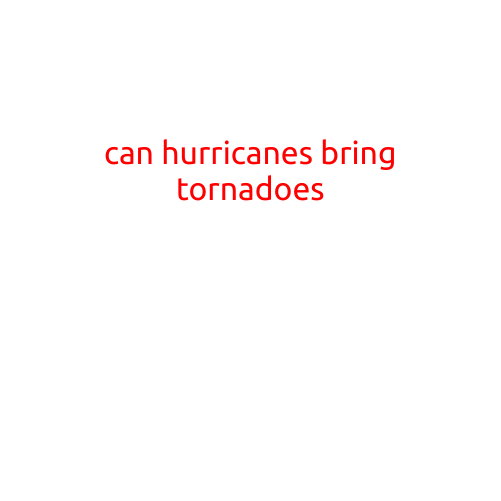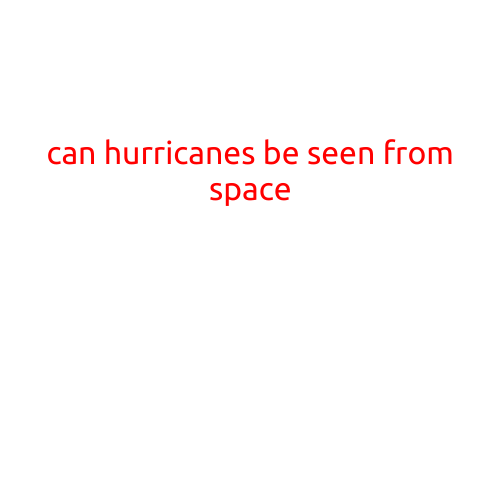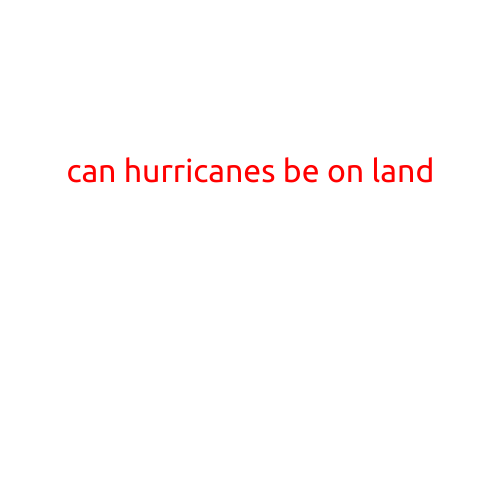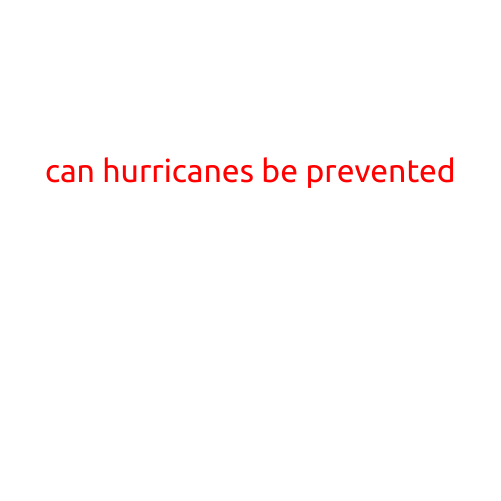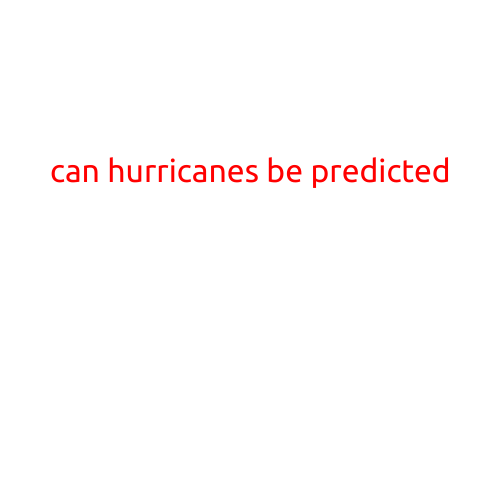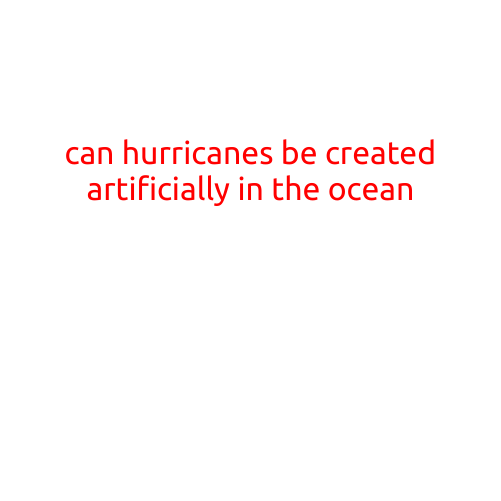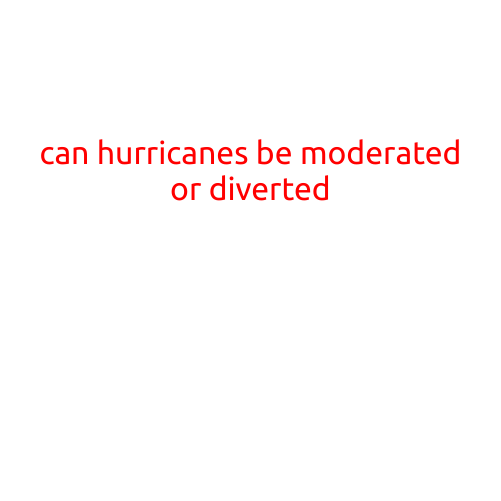
Can Hurricanes Be Moderated or Diverted?
Hurricanes have always been a source of fear and destruction, causing widespread devastation and loss of life. As the world continues to experience an increase in weather-related disasters, researchers and scientists have been exploring ways to mitigate the impact of these powerful storms. One of the most pressing questions is whether it is possible to moderate or divert hurricanes.
The Challenge of Weather Modification
Weather modification, in general, is the process of altering the natural weather patterns to reduce the severity of a storm or prevent it from occurring altogether. When it comes to hurricanes, the task is particularly daunting due to the sheer scale and complexity of these storms. Hurricanes are massive weather systems that cover thousands of square miles, with winds reaching speeds of over 150 miles per hour. Attempting to moderate or divert such a powerful force of nature requires a deep understanding of the underlying physics and dynamics that drive the storm.
Current Research Efforts
Researchers have been exploring several methods to moderate or divert hurricanes, including:
- Cloud seeding: This involves injecting substances such as silver iodide or dry ice into clouds to enhance or suppress precipitation. While cloud seeding has been shown to be effective in some cases, its effectiveness in hurricane mitigation is still purely theoretical.
- Ocean surface manipulation: Some scientists have proposed using large-scale ocean surface manipulations, such as creating artificial waves or altering the ocean’s temperature and salinity, to disrupt the storm’s energy source or steering mechanism. However, these methods are still in the early stages of development and require further study.
- Atmospheric manipulation: Another approach is to manipulate the atmospheric conditions around the hurricane to reduce its strength. This could involveinjecting substances into the atmosphere or using large-scale fans to alter the wind patterns. While conceptually intriguing, these ideas are still largely theoretical and require significant research to determine their feasibility.
Theoretical Possibilities
While current research is centered on the development of hurricane-modification technologies, there are several theoretical possibilities that have sparked interest and debate:
- Satellite-based hurricane tracking and prediction: Advanced satellite technology could potentially track hurricane trajectories more accurately, allowing for earlier warning systems and more effective evacuations.
- Geoengineering: The idea of deliberately altering the global climate to mitigate the impact of hurricanes is controversial and raises significant ethical concerns. However, some scientists have proposed large-scale geoengineering projects to reduce global temperatures, which could potentially reduce hurricane activity.
- Tropical cyclone-avoidance systems: The development of advanced weather tracking systems could potentially enable the creation of “hurricane-avoidance corridors” or “storm-free zones” around coastal areas.
Challenges and Controversies
Despite the theoretical possibilities, there are several significant challenges and controversies surrounding hurricane moderation and diversion:
- Scale and complexity: Hurricanes are massive weather systems that require a deep understanding of the underlying physics and dynamics. Disrupting or moderating these storms is a highly complex task.
- Environmental concerns: Any large-scale attempts to modify or divert hurricanes would require significant environmental assessments and would likely raise concerns about unintended consequences.
- Ethical considerations: The idea of deliberately altering the weather or environment raises significant ethical concerns, particularly if the effects of such interventions are unforeseen or unintended.
- Cost and resources: Developing and implementing hurricane-modification technologies would likely require significant investment and resources.
Conclusion
While researchers have made progress in understanding the dynamics of hurricanes and exploring ways to moderate or divert them, there is still much to be learned and debated. The challenges and controversies surrounding hurricane modification are significant, and any attempts to mitigate or divert these storms must carefully balance the potential benefits against the potential risks and consequences. As we continue to develop and refine our understanding of hurricane behavior and the weather itself, we may uncover new approaches and technologies that can help reduce the impact of these powerful storms.
